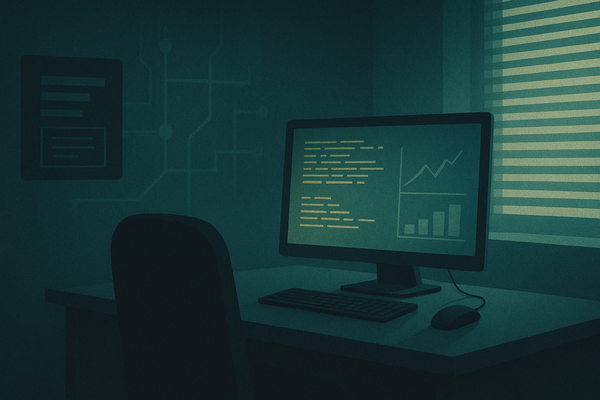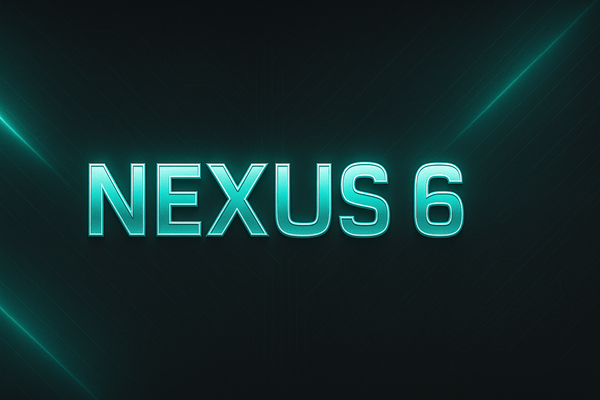May the 4th Be With You: A Journey Through Time and Space
It’s a day when the Force feels just a little bit stronger in our everyday world.

There’s a certain magic to it, isn't there? That simple phrase, "May the 4th be with you." Uttered online, shared between friends, maybe even whispered with a knowing smile to a stranger wearing a Rebel Alliance insignia on their jacket. It’s more than just a date on the calendar; it’s a password, an instant connector, a shared frequency tuning millions of us across the globe into the same beloved galaxy far, far away. It’s a day when the Force feels just a little bit stronger in our everyday world.
What always brings a smile to my face is the delightfully quirky origin of this now-global celebration. It wasn't born in a Lucasfilm marketing meeting or timed with a film release. No, the first recorded use of the pun traces back to May 4th, 1979, in the UK. Supporters of Margaret Thatcher, celebrating her election as Prime Minister, took out an ad in the London Evening News proclaiming, "May the Fourth Be With You, Maggie. Congratulations".

It’s an almost absurd beginning, linking this beloved space opera to British politics. Yet, there’s a certain charm to its accidental nature. The phrase lingered, a quiet joke among fans for years. Then, fueled by the rise of the internet and social media, fans organically adopted and amplified it, transforming a political quip into a genuine grassroots celebration. It wasn't until the early 2010s, particularly after Disney acquired Lucasfilm, that the day received official recognition and became the blend of earnest celebration and marketing opportunity we see today.
But for so many of us, myself included, May the 4th transcends the pun and the official promotions. It’s a day to pause, reflect, and celebrate what Star Wars truly means to us – personally and collectively. It’s a tribute to the power of storytelling, the boundless reach of imagination, and the unexpected communities forged in the light of twin suns. It feels authentic because, in spirit, it began with us, the fans. This organic growth, this sense that fans claimed the day before it was officially sanctioned, is perhaps why May the 4th resonates more deeply than other potential dates, like the original film's release anniversary. It feels like our day, a testament to the power of a shared passion that grew from the ground up, much like the Rebellion itself.
My Own Hyperspace Jump: Becoming a Fan
Every cultural touchstone that shapes us has its moment of inception in our lives—that transformative first experience that etches itself into our personal mythology. For me, Star Wars arrived not amid the excitement of American theaters in May 1977, but through the slower, more deliberate cultural diffusion that defined international film distribution in that era.
I recall the whispers of this cinematic revolution reaching Portugal in the winter months—December 1977 in Lisbon, January 1978 in Porto. At five years old, I stood at the precipice of understanding something momentous was happening, yet found myself held back by the practical constraints of age. The reasoning made perfect sense to everyone except me, the child whose imagination was already primed for interstellar adventure.
My redemption came in 1981, when at eight years old, I finally experienced the first two films in succession. While the precise moment has blurred with time, the emotional imprint remains crystal clear—that overwhelming sense of wonder when the Imperial Star Destroyer emerged from the top of the screen in A New Hope, extending seemingly forever, a leviathan of steel and purpose that redefined my understanding of scale and possibility.
Perhaps it was the ignition of a lightsaber that truly captured me—that distinctive hum that promised both danger and adventure, a sound that would become the soundtrack to countless childhood games. What I experienced was pure, unadulterated awe—an emotional response that connects me to generations of fans who have their own sacred moments of first contact with this universe.
In reflecting on this foundational experience, I recognise how these early encounters with storytelling shape not just our tastes, but our very perception of what's possible in our lives and imaginations. My delayed introduction to Star Wars only heightened its eventual impact, teaching me that some journeys are worth the wait. That initial spark quickly caught fire. Suddenly, starships weren't just background details; they were blueprints to be sketched in notebooks. Characters weren't just actors on screen; they were heroes and villains whose backstories demanded exploration. I hunted down translated novels, devoured any comic book I could find, piecing together the lore, trying to understand the intricate tapestry of this galaxy. Discussions with friends became passionate debates about Jedi philosophy or the best way to take down an AT-AT walker.
Why did it stick so profoundly? It was partly the sheer spectacle, of course. But deeper than that, it was the characters – their struggles, their growth, their relatable flaws despite the fantastical setting. It was the vastness of the universe, hinting at infinite stories beyond the films. And it was the potent blend of science fiction and mythic fantasy, tapping into something ancient and universal. This personal resonance, this feeling that the story speaks directly to you, is the bedrock of enduring fandom, and I was hooked.
Those first encounters, often during childhood or adolescence, forge powerful emotional connections as well. Star Wars, with its clear archetypes, resonant themes, and groundbreaking visuals, is exceptionally good at capturing imaginations early on. These memories become intertwined with our own personal histories, shaping our relationship with the franchise for life. Even as new films, series, and games arrive, that foundational experience often remains the emotional core of our fandom. It helps explain why discussions about the "correct" viewing order or debates about the merits of new versus old content can become so passionate; we're often defending not just a film, but a piece of our own past, a feeling we first discovered a long time ago.
More Than Lightsabers and Starships: The Heart of the Saga
Strip away the dogfights and the alien landscapes, and you find a core of powerful, enduring themes that elevate Star Wars far beyond simple entertainment. It speaks a language of myth that resonates across cultures and generations.
Chief among these themes is Hope. It’s the spark that ignites rebellion, the belief in a better future even when facing overwhelming darkness. "Rebellions are built on hope," Jyn Erso declared in Rogue One, encapsulating a sentiment woven throughout the saga. It's the driving force behind the Rebel Alliance's seemingly impossible struggle against the Empire, the quiet determination in Luke Skywalker's eyes as he confronts Vader, and the resilience shown by characters facing impossible odds across countless stories. In our own often-challenging world, this message of hope – that even small actions can make a difference, that light can persist against the dark – holds profound appeal.
Hand-in-hand with hope comes Rebellion. The fight against tyranny, the struggle for freedom and justice, is central to the Star Wars narrative. From the original trilogy's clear depiction of rebels versus empire to the more nuanced explorations of resistance and its costs in series like Andor, the saga offers a compelling framework for thinking about challenging oppressive systems and fighting for what's right.
Then there's The Force, the mystical energy field binding the galaxy together. It's more than just space magic; it's a complex philosophy exploring balance, connection, destiny, and the eternal struggle between the Light and Dark Sides. Fans delve deep into its meaning, debating the nature of the Jedi and Sith, the concept of balance, and its spiritual undertones. It adds a layer of depth and mystery that invites endless interpretation.
And finally, Redemption. The possibility that even those lost to darkness can find their way back to the light is a powerful and recurring theme, most famously embodied in the tragic arc of Anakin Skywalker/Darth Vader. It speaks to our own capacity for change and the enduring belief in second chances.
These themes aren't just abstract concepts; they live and breathe in the specific moments and character arcs that make up the vast Star Wars lore. Whether it's the complex moral choices faced by clones in The Clone Wars, the found family dynamics in Rebels, the gritty exploration of sacrifice in Andor, or the epic scope of the Skywalker saga, the stories constantly reinforce these core ideas. The richness added by novels, comics, and games – both in the current canon and the beloved Legends continuity – deepens this connection, offering endless avenues for exploration.
It becomes clear that Star Wars functions as a modern mythos. It uses archetypal structures like the Hero's Journey and universal themes that have resonated throughout human history. This is amplified by John Williams' masterful score, where recurring musical themes (leitmotifs) instantly evoke characters and emotions, reinforcing the narrative on a subconscious level much like the grand operas of the past. This blend of archetypal storytelling and powerful music gives the saga its mythic quality, allowing it to penetrate deeply into our culture and connect with audiences on a level that transcends mere entertainment. We aren't just watching movies; we're engaging with a shared cultural language that offers meaning and inspiration, fueling the incredible passion and detailed analysis that defines the fandom.
Finding My Tribe: The Global Fan Community
One of the greatest joys of being a Star Wars fan is discovering you're not alone. That moment you connect with someone else who gets it – who understands the significance of "I know," who can debate the merits of different starfighter designs, who feels that same thrill when the hyperspace jump kicks in – is incredibly validating. In today's world, this connection happens instantly online through forums like TheForce.Net, bustling Reddit communities, and endless social media conversations using hashtags like #MayThe4thBeWithYou. But it also happens face-to-face, at local meetups, conventions, or even just chance encounters.
The ways fans celebrate this shared passion, especially on May 4th, are as diverse as the galaxy itself. There are the classic movie marathons, debating the perfect viewing order. There's the incredible creativity of cosplay, with groups like the 501st Legion and Rebel Legion not only crafting screen-accurate costumes but also dedicating countless hours to charity work, bringing joy to children's hospitals and communities. People host themed parties with Wookiee cookies and blue milk, engage in arts and crafts, or dive into Star Wars gaming events.
Major conventions like Star Wars Celebration draw tens of thousands, while immersive experiences like Disney's Galaxy's Edge allow fans to literally step into the world. And, of course, there's the constant creation of fan art and fan fiction, expanding the universe in personal and imaginative ways.
This passion is truly global. Here in Portugal, the Force is strong too. We have dedicated groups like the Star Wars Clube Portugal (SWCP), bringing fans together and sharing news in Portuguese. Events like the upcoming Jedicon Portugal in Lisbon promise cosplay contests, lightsaber duels, and guest appearances, showing how this global phenomenon takes root locally. Retailers like FNAC organise special May the 4th events across the country, from quizzes and gaming sessions to LEGO building activities and photo opportunities with costumed characters. Even LEGO itself offers special promotions for Portuguese fans around this time. It’s wonderful to see this universal love manifest in ways that feel close to home.
Being a Star Wars fan is often an active, creative, and social pursuit. The depth of the universe invites exploration and interpretation. The themes resonate, sparking creative expression. Technology connects us across borders. Structured groups like the costuming legions provide outlets for creativity and community service, forging strong bonds. This active participation transforms fandom into a hobby, a passion, and sometimes, a part of our identity. It’s this participatory energy, replicated in local groups and events worldwide, that makes the community so vibrant and strengthens our individual connection to the saga.
Why the Force Endures
So, May the 4th arrives again. It began as an unlikely pun, grew into a fan-driven tradition, and eventually became a global phenomenon embraced by the creators themselves. For each of us, the journey likely started with a personal moment of discovery, evolving into a deeper appreciation for the rich lore and timeless themes, and often leading us to find connection within a vast, passionate community.
Why does Star Wars endure, captivating new generations decades after its debut?. It’s that unique alchemy: the thrill of adventure, the depth of its modern mythology, the relatable struggles of its characters, and the enduring power of themes like hope, rebellion, and redemption. It offers a universe vast enough for infinite stories, yet grounded in emotions and conflicts that feel deeply human.
As we look forward to new films, series, games, and books, the galaxy continues to expand. But the heart remains the same: the stories that inspire us and the community that shares that inspiration. It’s a reminder that even in a galaxy far, far away, the things that matter most – connection, courage, and hope – are universal. I remain grateful for this universe that has grown alongside me for forty-five years. Star Wars has been a constant companion through childhood wonder, teenage rebellion, adult responsibility, and midlife reflection.
So, wherever you are, whether you're marathoning the films, building a LEGO set, meeting up with fellow fans, or simply taking a moment to look up at the stars – Happy Star Wars Day!
May the 4th be with you. Always.





